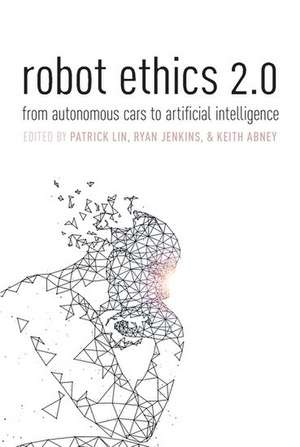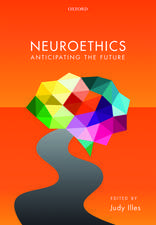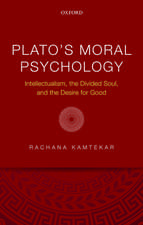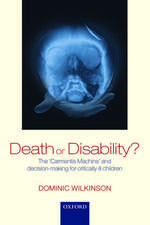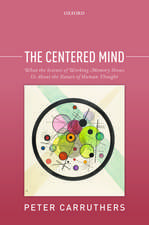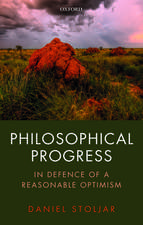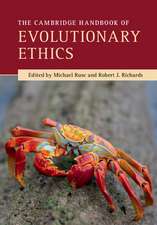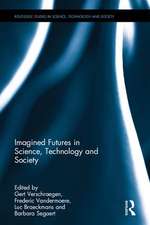Robot Ethics 2.0: From Autonomous Cars to Artificial intelligence
Editat de Patrick Lin, Ryan Jenkins, Keith Abneyen Limba Engleză Paperback – 30 ian 2020
| Toate formatele și edițiile | Preț | Express |
|---|---|---|
| Paperback (1) | 177.62 lei 32-37 zile | |
| Oxford University Press – 30 ian 2020 | 177.62 lei 32-37 zile | |
| Hardback (1) | 339.34 lei 32-37 zile | |
| Oxford University Press – 2 noi 2017 | 339.34 lei 32-37 zile |
Preț: 177.62 lei
Preț vechi: 191.01 lei
-7% Nou
Puncte Express: 266
Preț estimativ în valută:
33.99€ • 36.34$ • 28.34£
33.99€ • 36.34$ • 28.34£
Carte tipărită la comandă
Livrare economică 07-12 aprilie
Preluare comenzi: 021 569.72.76
Specificații
ISBN-13: 9780197503584
ISBN-10: 0197503586
Pagini: 440
Dimensiuni: 231 x 155 x 25 mm
Greutate: 0.61 kg
Editura: Oxford University Press
Colecția OUP USA
Locul publicării:New York, United States
ISBN-10: 0197503586
Pagini: 440
Dimensiuni: 231 x 155 x 25 mm
Greutate: 0.61 kg
Editura: Oxford University Press
Colecția OUP USA
Locul publicării:New York, United States
Recenzii
Robot Ethics 2.0 is worth your attention even if you are not a professional in the field...a decent amount of articles are well-written and will definitely enrich the research on robot ethics.
They have done an admirable job of organ-izing the material on a wide range of topics, and 2.0 provides a useful addition to 1.0 for exploring the new debates in this field.
The philosophy of technology, particularly its ethics, carries a heavy burden right now. This book is an excellent guide to the reasons why that burden is so pressing, and... offers a really strong roadmap of where we are, and where we ought to go.
They have done an admirable job of organ-izing the material on a wide range of topics, and 2.0 provides a useful addition to 1.0 for exploring the new debates in this field.
The philosophy of technology, particularly its ethics, carries a heavy burden right now. This book is an excellent guide to the reasons why that burden is so pressing, and... offers a really strong roadmap of where we are, and where we ought to go.
Notă biografică
Patrick Lin, Ph.D., is a philosophy professor and Director of the Ethics + Emerging Sciences Group at California Polytechnic State University. He is also affiliated with Stanford Law School, University of Notre Dame, and World Economic Forum; and previously with Stanford's School of Engineering, the U.S. Naval Academy, and Dartmouth College. On the ethics of emerging technologies, he has provided counsel to the U.S. Department of Defense, the United Nations, Google, Apple, and many other government and industry organizations.Ryan Jenkins, Ph.D., is an assistant professor of philosophy and a Senior Fellow at the Ethics + Emerging Sciences Group at California Polytechnic State University. He focuses on normative ethics (especially consequentialism) and applied ethics, including military ethics and emerging technologies such as driverless cars, robots, and autonomous weapons.Keith Abney, A.B.D., is senior lecturer in the Philosophy Department and a Senior Fellow at the Ethics +Emerging Sciences Group at California Polytechnic State University, with research that includes work on demarcating science from non-science, moral status and sustainability, astronaut and space bioethics, patenting life, human enhancement, just war theory and the use of autonomous weapons, robot ethics, and other aspects of the ethical implications of emerging sciences and technologies
